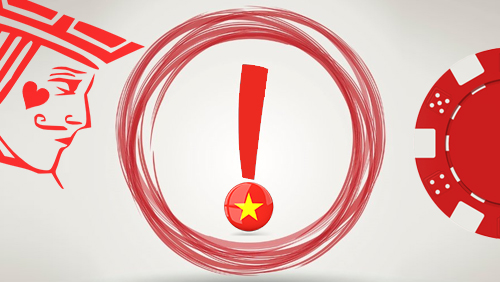Vietnam should put locations for new casinos high on its priority list if it wants to appeal to investors, experts said.
 In a note, Union Gaming Securities analyst Grant Govertsen said in order for the Asian country to attract major international casino operators, “the locations would be critical,” among other things.
In a note, Union Gaming Securities analyst Grant Govertsen said in order for the Asian country to attract major international casino operators, “the locations would be critical,” among other things.
“Depending on whether or not the government is willing to settle for less, and in the context of the current China macro, it is hard to imagine a scenario where there will be significant international interest on the part of the major players… unless an IR [integrated resort] license (with local allowed) is available for downtown Hanoi or Ho Chi Minh City,” said analyst Grant Govertsen in a note.
In addition, Govertsen said the government will also have “to dramatically lower the minimum investment requirement (currently set at US$4 billion), as well as lower gaming tax rates (currently 35 percent) in order [for operations] to be competitive in the region.”
Lowering the gaming tax, according to Govertsen, would be crucial for the country to be competitive in the region.
“It remains to be seen if a new draft decree will lower the effective tax rate further, which we believe would be necessary for Vietnam to complete effectively on a regional basis and attract world-class developers,” the analyst said.
Vietnam has been mulling the idea of allowing locals to gamble since last year, according to Stellar Group CEO Augustine Ha Ton Vinh. The residents, however, have to demonstrated they have the financial capacity—like, a minimum monthly income of $750—to absorb the gambling losses.
Early this month, Calvin Ayre—the mad prophet of the interwebs—predicted that Vietnam’s changing its stance on prohibiting locals entering casinos will spark renewed interest in the market from international casino operators.
However, in the event that locals gaming isn’t approved or the locations are outside of the major cities, Union Gaming analysts think “an entirely different set of gaming developers could be in play.” These operators would most likely include Solaire operator Bloomberry, which is already becoming more involved in gaming in South Korea; Donaco, which already operates the Aristo International in Lao Cai; Macau Legend; MelcoLot; NagaCorp; Silver Heritage; Summit Ascent; Suncity Group; and Universal Entertainment.
“Of course, in the context of a foreigners-only environment, we would expect the developers of the gaming portion of a project to want to limit their exposure to a reasonable dollar amount that would in all likelihood be significantly lower than US$1 billion,” Govertsen said.





